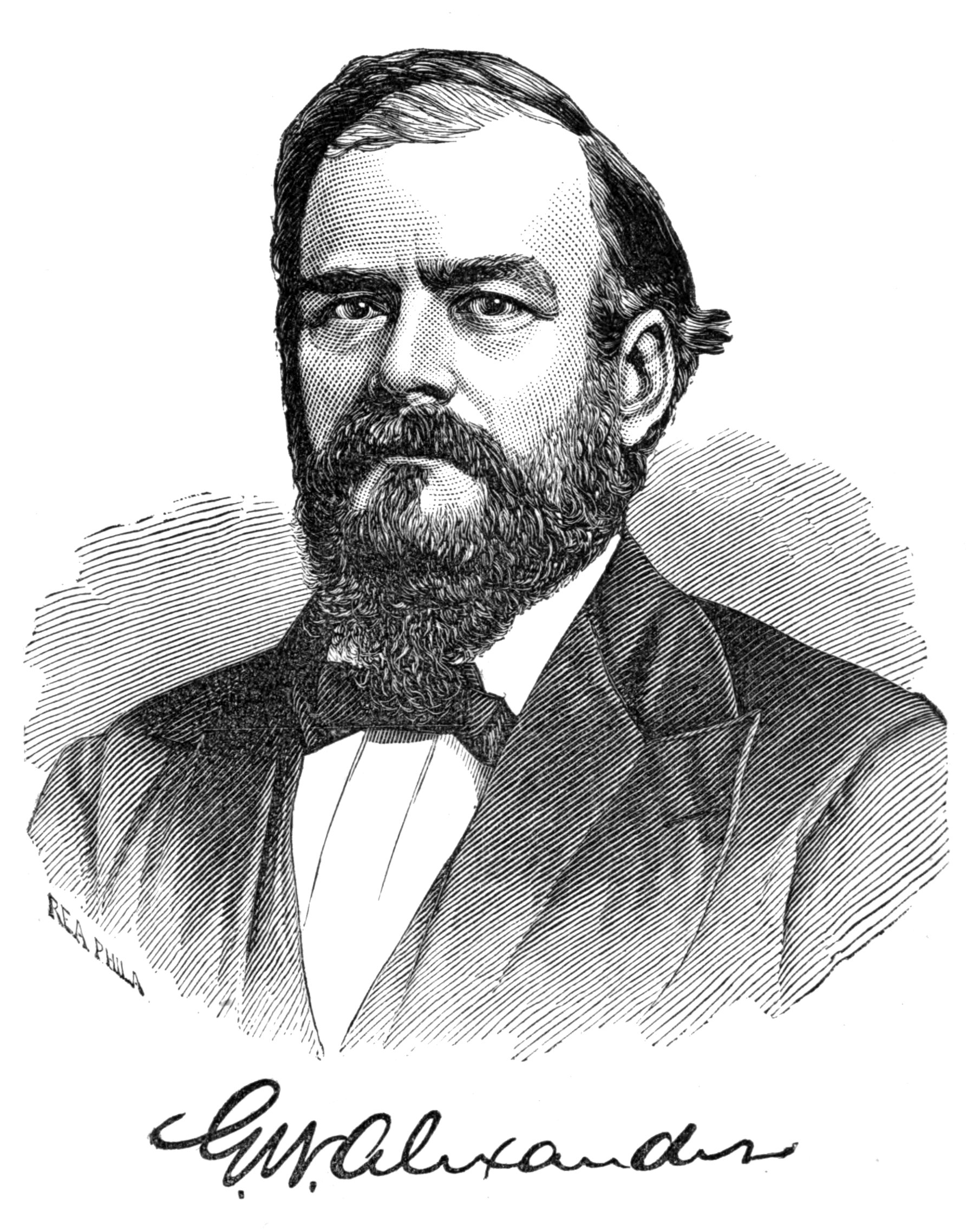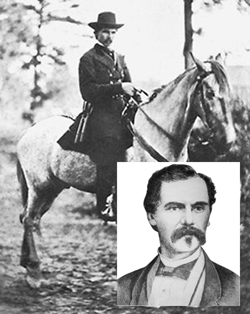|
Libby Prison
Libby Prison was a Confederate prison at Richmond, Virginia, during the American Civil War. In 1862 it was designated to hold officer prisoners from the Union Army. It gained an infamous reputation for the overcrowded and harsh conditions. Prisoners suffered high mortality from disease and malnutrition. By 1863, one thousand prisoners were crowded into large open rooms on two floors, with open, barred windows leaving them exposed to weather and temperature extremes. The building was built before the war as a tobacco warehouse and then used for food and groceries before being converted to a prison. In 1889, Charles F. Gunther moved the structure to Chicago and renovated it as a war museum. A decade later, the Coliseum Company dismantled the building and sold its pieces as souvenirs. History The prison was located in a three-story brick warehouse on two levels on Tobacco Row at the waterfront of the James River. Prior to use as a jail, the warehouse had been built for a tobacc ... [...More Info...] [...Related Items...] OR: [Wikipedia] [Google] [Baidu] |
Libby Prison Escape
The Libby Prison escape was a prison escape from Libby Prison, a Confederate prison at Richmond, Virginia in February 1864 that saw over 100 Union prisoners-of-war escape from captivity. It was one of the most successful prison breaks of the American Civil War. Led by Colonel Thomas E. Rose of the 77th Pennsylvania Infantry, the prisoners started tunnelling in a rat-infested zone which the Confederate guards were reluctant to enter. The tunnel emerged in a vacant lot beside a warehouse, from where the escapees could walk out through the gate without arousing suspicion. Since the prison was believed to be escape-proof, there was less vigilance by the authorities than in other camps, and the alarm was not raised for nearly 12 hours. Over half the prisoners were able to reach Union lines, helped by their familiarity with the terrain after serving in McClellan's Peninsula Campaign of 1862. Background At the outbreak of the Civil War, Luther Libby was running a ship supply shop ... [...More Info...] [...Related Items...] OR: [Wikipedia] [Google] [Baidu] |
Castle Thunder (prison)
Castle Thunder, located between what is now 17th Street and 18th Street on northern side of E Cary Street in Richmond, Virginia, was a former tobacco warehouse, located on Tobacco Row, converted into a prison used by the Confederacy to house civilian prisoners, including captured Union spies, political prisoners and those charged with treason during the American Civil War. A large number of its inmates were sentenced to death. Even though the inmates were sometimes allowed boxes of medicine and other supplies, the prison guards had a reputation for brutality. The prison's most notorious commandant was Captain George W. Alexander. As a Confederate soldier fighting in Maryland, Alexander was captured in 1861. While awaiting execution by the Union Army, he escaped and fled to Richmond. Once in Richmond, Alexander took command of the Castle Thunder Prison. Security at the prison was intense under Alexander. Prisoners are said to have complained of Alexander's brutality. Those held i ... [...More Info...] [...Related Items...] OR: [Wikipedia] [Google] [Baidu] |
Union Army Balloon Corps
The Union Army Balloon Corps was a branch of the Union Army during the American Civil War, established by presidential appointee Thaddeus S. C. Lowe. It was organized as a civilian operation, which employed a group of prominent American aeronauts and seven specially built, gas-filled balloons to perform aerial reconnaissance on the Confederate States Army. Lowe was one of a few veteran balloonists who was working on an attempt to make a transatlantic crossing by balloon. His efforts were interrupted by the onset of the Civil War, which broke out one week before one of his most important test flights. Subsequently, he offered his aviation expertise to the development of an air-war mechanism through the use of aerostats for reconnaissance purposes. Lowe met with U.S. President Abraham Lincoln on 11 June 1861, and proposed a demonstration with his own balloon, the ''Enterprise'', from the lawn of the armory directly across the street from the White House. From a height of he tel ... [...More Info...] [...Related Items...] OR: [Wikipedia] [Google] [Baidu] |
Federico Fernández Cavada
Federico Fernández-Cavada (July 8, 1831July 1, 1871) was an officer in the Union Army during the American Civil War and a diplomat, as well as commander-in-chief of all the Cuban forces during Cuba's Ten Years' War. Because of his artistic talents, he was assigned to the Hot Air Balloon Unit of the Union Army. From the air he sketched what he observed of enemy positions and movements. On April 19, 1862, Fernández Cavada sketched enemy positions from Thaddeus Lowe's ''Constitution'' balloon during the Peninsular Campaign in Virginia. At the rank of lieutenant colonel, he was captured during the Battle of Gettysburg and sent to Libby Prison for Union officers in Richmond, Virginia. Released in 1864, that year he published a book which told of the cruel treatment which he received in the Confederate prison.The Latino Experience in U.S. History"; publisher: Globe Pearson; pages 155-157; His brother Adolfo Fernández Cavada also served as an officer in the Union Army. Afte ... [...More Info...] [...Related Items...] OR: [Wikipedia] [Google] [Baidu] |
Daily Richmond Enquirer
Daily or The Daily may refer to: Journalism * Daily newspaper, newspaper issued on five to seven day of most weeks * ''The Daily'' (podcast), a podcast by ''The New York Times'' * ''The Daily'' (News Corporation), a defunct US-based iPad newspaper from News Corporation * ''The Daily of the University of Washington'', a student newspaper using ''The Daily'' as its standardhead Places * Daily, North Dakota, United States * Daily Township, Dixon County, Nebraska, United States People * Bill Daily (1927–2018), American actor * Elizabeth Daily (born 1961), American voice actress * Joseph E. Daily (1888–1965), American jurist * Thomas Vose Daily (1927–2017), American Roman Catholic bishop Other usages * Iveco Daily, a large van produced by Iveco * Dailies, unedited footage in film See also * Dailey, surname * Daley (other) * Daly (other) Daly or DALY may refer to: Places Australia * County of Daly, a cadastral division in South Australia * Daly Rive ... [...More Info...] [...Related Items...] OR: [Wikipedia] [Google] [Baidu] |
Battle Of Chickamauga
The Battle of Chickamauga, fought on September 19–20, 1863, between U.S. and Confederate forces in the American Civil War, marked the end of a Union offensive, the Chickamauga Campaign, in southeastern Tennessee and northwestern Georgia. It was the first major battle of the war fought in Georgia, the most significant Union defeat in the Western Theater, and involved the second-highest number of casualties after the Battle of Gettysburg. The battle was fought between the Army of the Cumberland under Maj. Gen. William Rosecrans and the Confederate Army of Tennessee under Gen. Braxton Bragg, and was named for Chickamauga Creek. The West Chickamauga Creek meanders near and forms the southeast boundary of the battle area and the park in northwest Georgia. (The South Chickamauga ultimately flows into the Tennessee River about 3.5 miles (5.6 km) northeast of downtown Chattanooga). After his successful Tullahoma Campaign, Rosecrans renewed the offensive, aiming to f ... [...More Info...] [...Related Items...] OR: [Wikipedia] [Google] [Baidu] |
Dysentery
Dysentery (UK pronunciation: , US: ), historically known as the bloody flux, is a type of gastroenteritis that results in bloody diarrhea. Other symptoms may include fever, abdominal pain, and a feeling of incomplete defecation. Complications may include dehydration. The cause of dysentery is usually the bacteria from genus '' Shigella'', in which case it is known as shigellosis, or the amoeba '' Entamoeba histolytica''; then it is called amoebiasis. Other causes may include certain chemicals, other bacteria, other protozoa, or parasitic worms. It may spread between people. Risk factors include contamination of food and water with feces due to poor sanitation. The underlying mechanism involves inflammation of the intestine, especially of the colon. Efforts to prevent dysentery include hand washing and food safety measures while traveling in areas of high risk. While the condition generally resolves on its own within a week, drinking sufficient fluids such as oral ... [...More Info...] [...Related Items...] OR: [Wikipedia] [Google] [Baidu] |
Libby Prison By David Gilmour Blythe, 1863
Libby as a feminine given name is typically a diminutive form of Elizabeth, which is less commonly spelled 'Libbie' or ' Libi'. In recent years, it has been used as a shortened version of the name Liberty. As a surname, it can also be spelled ' Libbey'. Libby or Libbie may refer to: People with the name Given name Libby or Libbie * Libby Davies (born 1953), Canadian member of parliament * Libby Gill (born 1954), American motivational writer, speaker and coach * Libby Gleeson (born 1950), Australian writer * Libby Fischer Hellmann, American crime fiction writer * Libbie Hickman (born 1965), American former long-distance runner * Libbie Hyman (1888–1969), American zoologist * Libby Lane (born 1966), British Anglican bishop * Libby Larsen (born 1950), American classical composer * Libby Morris (born 1930), Canadian comic actress * Libby Munro (born 1981), Australian actress * Libby Potter, British reporter * Libby Rees (born 1995), British author * Libby Riddles (born ... [...More Info...] [...Related Items...] OR: [Wikipedia] [Google] [Baidu] |
Illinois
Illinois ( ) is a state in the Midwestern United States. Its largest metropolitan areas include the Chicago metropolitan area, and the Metro East section, of Greater St. Louis. Other smaller metropolitan areas include, Peoria and Rockford, as well Springfield, its capital. Of the fifty U.S. states, Illinois has the fifth-largest gross domestic product (GDP), the sixth-largest population, and the 25th-largest land area. Illinois has a highly diverse economy, with the global city of Chicago in the northeast, major industrial and agricultural hubs in the north and center, and natural resources such as coal, timber, and petroleum in the south. Owing to its central location and favorable geography, the state is a major transportation hub: the Port of Chicago has access to the Atlantic Ocean through the Great Lakes and Saint Lawrence Seaway and to the Gulf of Mexico from the Mississippi River via the Illinois Waterway. Additionally, the Mississippi, Ohio, and W ... [...More Info...] [...Related Items...] OR: [Wikipedia] [Google] [Baidu] |
Abraham Lincoln
Abraham Lincoln ( ; February 12, 1809 – April 15, 1865) was an American lawyer, politician, and statesman who served as the 16th president of the United States from 1861 until his assassination in 1865. Lincoln led the nation through the American Civil War and succeeded in preserving the Union, abolishing slavery, bolstering the federal government, and modernizing the U.S. economy. Lincoln was born into poverty in a log cabin in Kentucky and was raised on the frontier, primarily in Indiana. He was self-educated and became a lawyer, Whig Party leader, Illinois state legislator, and U.S. Congressman from Illinois. In 1849, he returned to his successful law practice in central Illinois. In 1854, he was angered by the Kansas–Nebraska Act, which opened the territories to slavery, and he re-entered politics. He soon became a leader of the new Republican Party. He reached a national audience in the 1858 Senate campaign debates against Stephen A. Douglas. L ... [...More Info...] [...Related Items...] OR: [Wikipedia] [Google] [Baidu] |





